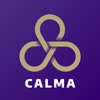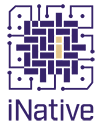Research Centers and Groups
The research centers and groups housed within the Information School are internationally recognized hubs for innovative scholarship and research.
Research Centers
Center for Advances in Libraries, Museums and Archives
 Chance Hunt, Jessica Luke, Temi Odumosu and Melanie Walsh, Executive Council members
Chance Hunt, Jessica Luke, Temi Odumosu and Melanie Walsh, Executive Council members
CALMA cultivates the study of diverse systems of knowledge, their production, collection, and access. It amplifies the critical roles of libraries, museums and archives in fostering thriving communities and elevating stories of our diverse humanity.
Center for Digital Youth
Katie Davis, Director
Digital Youth explores the interactions of young people with digital information and technology. Beginning with young children learning literacy skills through young adults and their information seeking behavior, faculty and students at the University of Washington Information School conduct research to understand how contemporary youth consume and create information through both traditional and 21st Century technologies.
Center for an Informed Public
 Chris Coward, Emma Spiro and Jevin West, Co-Principal Investigators
Chris Coward, Emma Spiro and Jevin West, Co-Principal Investigators
The Center for an Informed Public is an interdisciplinary effort launched in fall 2019. Its mission is to marshal the collective resources of a world-class research university, embedded within local communities, to resist strategic misinformation, promote an informed society, and strengthen democratic discourse. The Center is non-partisan. It brings diverse voices from across industry, government, nonprofits and other institutions to the study of how misinformation and disinformation flow through information systems; how information translates into values, beliefs and actions; and how researchers, educators, librarians and policymakers can intervene in these processes to foster a more informed society.
CREATE
 Jennifer Mankoff and Jacob O. Wobbrock, Inaugural Co-Directors
Jennifer Mankoff and Jacob O. Wobbrock, Inaugural Co-Directors
The Center for Research and Education on Accessible Technology and Experiences, a cross-university initiative, is dedicated to propelling accessible technology research, education and translation — from meaningful incremental improvements to paradigm-shifting breakthroughs that enable greater inclusion and participation for people of all abilities.
RAISE
 Bill Howe, Tanu Mitra and Chirag Shah, Faculty Partners
Bill Howe, Tanu Mitra and Chirag Shah, Faculty Partners
Responsibility in AI Systems & Experiences (RAISE) researchers from across the UW conduct research on issues of transparency, fairness, accountability and trustworthiness in artificial intelligence systems. They build and evaluate human-centric AI algorithms and systems across the public sector; the physical, life and social sciences; and relevant industries.
TASCHA
 Jason Young, Director
Jason Young, Director
The Technology & Social Change Group (TASCHA) at the University of Washington Information School explores the design, use, and effects of information and communication technologies in communities facing social and economic challenges. With experience in over 50 countries, TASCHA brings together a multidisciplinary network of researchers, practitioners, and policy experts to advance knowledge, create public resources, and improve policy and program design. Our purpose? To spark innovation and opportunities for those who need it most.
Research Groups
ACE (Accessible Computing Experiences) Lab
Jacob O. Wobbrock, Director
The ACE Lab is a group of human-computer interaction (HCI) researchers interested in mobile and accessible design. The lab is composed of students from both information science and computer science. The lab's objective is to create effective and useful interactive technologies that improve people's access to and interaction with computers and information, particularly for constrained users or users in constraining situations. Lab members study the human use of interactive systems, and invent and build new interactive systems. The lab is part of the larger DUB Group, the multi-departmental HCI and Design group on the UW campus.
AfterLab
 Marika Cifor, Anna Lauren Hoffmann and Megan Finn, co-directors
Marika Cifor, Anna Lauren Hoffmann and Megan Finn, co-directors
AfterLab is dedicated to critical study of information, data, and archives in times of transition, crisis, or upheaval. Thematically rooted in the overlapping domains of critical information studies, critical data studies, and critical archival studies, AfterLab members support and reflect topical and methodological diversity, with particular emphasis on humanistic and critical social scientific methods. Regardless of the domain of inquiry, AfterLab faculty, students, and affiliates approach information, data, and archives as constructed and yet indispensable to how we conceive of life in precarious worlds.
Code & Cognition Lab
Amy J. Ko, Director
The Code & Cognition Lab studies the human aspects of programming. The lab is run in a doctoral student-centered manner; students define their own projects within the scope of Dr. Ko's interests, and often move her into new research areas.
DataLab
 Multiple iSchool Faculty
Multiple iSchool Faculty
The DataLab is the nexus for research on Data Science and Analytics at the UW iSchool. We study large-scale, heterogeneous human data in an effort to understand why individuals, consumers, and societies behave the way they do. As the focal point for industry partnerships related to “big data” and business analytics, the DataLab also provides infrastructure and support for student training and engagement in projects that involve the analysis of large datasets.
Design and Social Justice Studio
Nassim Parvin, Director
The Design and Social Justice Studio is an interdisciplinary research group that examines the ethical and political dimensions of emerging technologies. Grounded in a commitment to social justice, the studio explores how values shape design and research practices, with an emphasis on equity, access and inclusion. The studio cultivates a collaborative, cross-disciplinary environment that centers humility, generosity and joy — prioritizing diverse perspectives as essential to innovation.
GAMER Group
 Jin Ha Lee, Director
Jin Ha Lee, Director
The GAMER Group explores new ideas and approaches for organizing and providing access to video games and interactive media, particularly from a user-centered perspective. They research various topics related to data modeling, metadata creation, and construction of controlled vocabularies for games and other related media such as music, artwork, videos, and more.
InfoSeeking Lab
 Chirag Shah, Director
Chirag Shah, Director
The InfoSeeking Lab engages in research and education activities in the larger fields of Information and Data Sciences, with a focus on information seeking/retrieval/behavior and social media. Directed by Dr. Shah, the lab includes several Ph.D., Masters and undergraduate students and is funded by federal agencies such as NSF, IMLS, NIH, and Smithsonian Institution, as well as private organizations such as OCLC, Amazon, Google, and Yahoo.
iMed
 Wanda Pratt, Director
Wanda Pratt, Director
The iMed research group develops and evaluates new types of information technology to help people find, share, manage, and use information as it relates to healthcare. The work is based on needs of real users and often incorporates studying people’s information behavior and the impact of new information technology on their lives.
iNative Research Group
 Cheryl Metoyer, Director
Cheryl Metoyer, Director
The iNative research group is comprised of Native American and Alaska Native scholars, information professionals, and students concerned with addressing the information challenges faced by Native nations. With an emphasis on Native American and Alaska Native populations, the iNative research group seeks to raise the level of discourse concerning information and Native American communities through an Indigenous knowledge lens and with a focus on social justice.
iStartup Lab
The iStartup Lab helps students who are working on startups or are curious about the process of launching a new innovation-driven organization. The lab teaches students about entrepreneurship through courses and events and provides a place for entrepreneurial students to network, collaborate with peers and contribute to entrepreneurship research at the iSchool.
Knowledge Organization
 Joseph T. Tennis, Director
Joseph T. Tennis, Director
Knowledge organization (KO) is the field of scholarship concerned with the design, study, and critique of the processes of organizing and representing documents that societies see as worthy of preserving. This field, as stated, has three parts: design, study, and critique. Each of these parts has its own set of epistemologies, theories, and methodologies – all manifest in the scholarship carried out by KO researchers.
MUSE Research Lab
 Jessica Luke, Director
Jessica Luke, Director
MUSE includes faculty and students doing original research in museums, and in particular at the intersection of museums, learning, and well-being. The lab studies how and what people learn in museums, especially critical thinking, cognition, play, and social-emotional development. Relatedly, researchers study the role of museums in psychological well-being, as well as emotions such as awe and empathy that influence both learning and well-being in museums.
User Empowerment Lab
Alexis Hiniker, Director
Do you ever find yourself frustrated with the amount of time you spend on social media and struggling to change your habits? The User Empowerment Lab studies the ways in which digital technologies make life worse for their users. And we design new systems, apps, and interactions to help people feel empowered rather than exploited.
Value Sensitive Design (VSD) Research Lab
 Batya Friedman and David Hendry, Co-Directors
Batya Friedman and David Hendry, Co-Directors
Value Sensitive Design refers to an approach to the design of technology that accounts for human values in a principled and systematic manner throughout the design process. The group's work is primarily concerned with values that center on human well being, human dignity, justice, and human rights. The Value Sensitive Design approach connects the people who design systems and interfaces with the people who think about and understand the values of the stakeholders who are affected by the systems. Current projects include long-term envisioning, privacy in public, sustainability, and value sensitive design methods. Ultimately, Value Sensitive Design broadens the goals and criteria for judging the quality of technological systems to include those that advance human flourishing.
Visualization Studies Research Studio
 Jaime Snyder, Director
Jaime Snyder, Director
The Visualization Studies Research Studio is a collective of interdisciplinary faculty, students, community members and researchers. We use qualitative and design methods to work with critical image-making as a form of inquiry and social interaction. We demonstrate and support inclusive, ethical and appropriate visualization practices through our various projects.
Research Partnerships
DUB Group (design:use:build)
 Multiple Departments
Multiple Departments
DUB is an alliance of faculty and students across the University of Washington exploring Human-Computer Interaction and Design. Primary DUB departments include Computer Science & Engineering, Technical Communication, the Information School, and the Design Division in the School of Art. Other departments and industry partners, such as Microsoft Research and Intel Research, are also part of DUB. DUB facilitates research and teaching collaboration, student internships, and funding initiatives in the field of Human-Computer Interaction (HCI). DUB also hosts a weekly seminar series, bringing top-quality research in HCI to the University of Washington.
Public Interest Technology University Network (PIT-UN)
 Chris Coward, UW Contact
Chris Coward, UW Contact
PIT-UN is a collaboration among dozens of higher education institutions committed to building the field of public interest technology by growing a new generation of civic-minded technologists and digitally fluent policy leaders. The University of Washington’s PIT-UN effort is led by the Information School, with collaboration from the School of Law, the Paul G. Allen School of Computer Science & Engineering, and the Evans School of Public Policy & Governance.
Tech Policy Lab
Aylin Caliskan, Co-Director
The Tech Policy Lab is a unique, interdisciplinary collaboration at the University of Washington that aims to enhance technology policy through research, education, and thought leadership. The Tech Policy Lab was founded with a generous gift from Microsoft in 2013.
